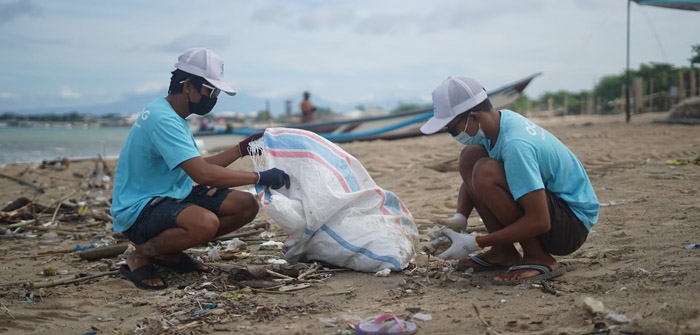Water contamination is an issue that continues to be relevant, even in 2022. From the Flint Water Crisis to the ongoing issues with water pollution in rural areas, we all need to understand how we can make a difference when it comes to tackling this problem.
Luckily, many pioneers are stepping up and taking on this challenge head-on. Here are just a few examples of how people are trying to solve the water contamination crisis.
Plastic Drinking Straws Banned Across the U.S.
The United States has banned plastic straws across the country, and it’s not the only place making this move. Cities and states across the world are banning plastic straws, including in some countries that are very far away from each other.
Examples:
- The city of Seattle banned plastic straws in July 2018.
- Vancouver banned plastic straws at all restaurants in 2019.
- Dublin will ban plastic straws by 2021; the entire Republic of Ireland is expected to follow suit soon after that.
Water Filtration Systems Become Mandatory in Schools
In 2022, the US government mandates that all public schools install water filtration systems in every drinking fountain, kitchen, and bathroom. These systems include a series of filters that remove most contaminants from the water and then return it to the original state. The individual school districts will decide which type of filter is best for each location.
People Taking Legal Action
People are working to reduce the amount of plastic in the environment. They are also taking legal action against companies whose products have contributed to water contamination. For example:
- People who live near areas where oil has been spilled may sue oil companies for failing to protect their health and property.
- People who use straws made out of plastic may sue manufacturers of those straws for adding unnecessary waste into our oceans and lakes (and drinking water supplies).
- Victims might sue people who own businesses that sell bottled water if it is discovered that their business was negligent in preventing contamination by careless disposal of single-use plastic bottles.
Various law firms are also stepping into the scene, like the lawyers at TorHoerman Law handling the Camp Lejeune Water Contamination Lawsuit. The lawsuit aims to help out over a million people affected by water contamination in North Carolina. As of May 2022, the Camp Lejeune Justice Act is closing in on senate approval. That goes to show that where there is a will, there is a way.
New Guidelines on Safe Water Levels for Infants and Children
The EPA has updated its guidelines on safe water levels for infants and children to reflect the latest scientific data. The new recommendations are as follows:
- Pregnant women should drink only bottled or filtered water. Ideally, they should also use a reverse osmosis system in their homes until their pregnancies are over.
- Infants and children should avoid all tap water until 2022 at the earliest. If you live in an area where your family has been exposed to contaminated tap water (or if you don’t know whether your community’s drinking water has been contaminated), it’s best to purchase bottled or filtered water for all members of your household until 2022 at the earliest.
- Nursing mothers should also avoid all tap water until 2022 at the earliest; breast milk contains many different contaminants that can harm your baby even if his/her digestive tract won’t be damaged by ingesting them himself/herself.
Water-Soluble Electronics Become Mainstream
Water-soluble electronics are being used to detect contaminants in water. This technology is still in its infancy, but it is expected to become mainstream within the next five years.
These water-soluble electronics can be used to detect bacteria and viruses, as well as chemicals such as mercury and lead. They can also be used on surfaces like clothing or skin for real-time monitoring of contamination levels.
Major Retailers Stop Selling Bottled Water
Major retailers have stopped selling bottled water altogether. This will affect the companies that sell bottled water, like Nestle and Coca-Cola, as well as smaller stores that rely on it for their revenue.
Companies that sell bottled water are in trouble because of the change in public opinion about drinking tap water. People have seen what happens when contamination occurs, and they don’t want to risk buying something with no guarantee of safety or quality.
As a result, these companies will lose money if they continue to try selling bottled waters at the same price as before. If they do, even fewer people will buy them than before due to financial concerns – making this an even greater concern than it is already known today.
As we have seen, water contamination is a growing and complex problem that affects millions of Americans across the country. But thankfully, many concerned citizens and policymakers are taking action to fight back through research, education, and grassroots efforts. While some of these initiatives have been more successful than others, the encouraging thing is how many people are willing to step up and work together on this crucial issue.




